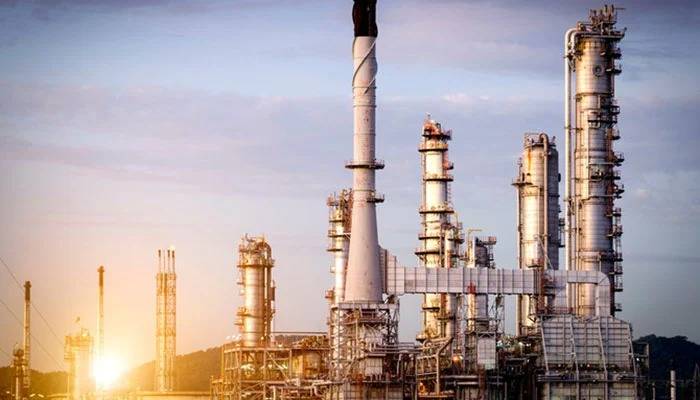The Greenfield Refinery Policy will bring in much-needed investment in Pakistan’s refining industry, which has not seen any substantial investment during the last two decades.
In this connection, four Pakistani state-owned companies have recently signed a memorandum of understanding (MoU) to move towards setting up a greenfield refinery at the cost of $10 billion in Balochistan province.
The development followed the approval of the Greenfield Refinery Policy by the government few weeks ago. The policy was approved to facilitate the process of setting up a state-of-the-art refinery with Saudi Arabia’s stake in it.
The policy will lead to setting up of a complex petrochemical refining plant with a capacity of 300,000-400,000 barrels per day. It is expected to have a negligible furnace oil output, which will prove highly beneficial. It is also expected that the already approved bonded oil storage along with this will likely tame down huge exchange losses the local refineries have had to face during the last few years.
The project cost is approximately $10 billion, out of which Saudi Arabia is expected to contribute 30% equity, with another 30% being contributed by Pakistan State Oil (PSO), and the remaining 40% is unclear for now and will most probably be raised through debt. The PSO’s equity contribution of 30% translates into $3 billion.
The Pakistani state-owned entities, Oil and Gas Development Company Limited (OGDCL), Pakistan State Oil (PSO), Pakistan Petroleum Limited (PPL), and Government Holdings Private Limited (GHPL), will collaborate through a joint investment strategy. The project will have significant foreign investment from world-class oil and gas giants through equity participation.
The project envisions setting up an integrated refinery petrochemical complex with crude oil processing capacity of minimum 300,000 barrels per day along with petrochemical facility in Pakistan. The integrated refinery petrochemical complex shall comprise various components such as marine infrastructure, storages for crude oil and refined utilities, pipeline connectivity, etc.
Secretary of Petroleum – Captain (R) Muhammad Mahmood termed GreenField Refinery Policy a positive step, and underscored the commitment of the Petroleum Division towards the growth of the petroleum sector.
Minister of State for Petroleum Division Dr Musadik Malik highlighted details of the project and its benefits to national economy by way of economic growth, foreign exchange savings, energy security, employment opportunities and social upliftment.
The refinery shall also enjoy a 20-year tax holiday and would also be entitled to exemption from levy of customs duties, surcharges, withholding tax, general sales tax, any other ad valorem tax or any other levies and duties on import of any equipment to be installed, or material to be used in the refinery projects without any precondition for obtaining certification by the Engineering Development Board (EDB).
The PSO is facing a liquidity crunch with receivables mounting to Rs544 billion as of March 23, 2023. If the government is able to clear these receivables, the PSO will be in a much better position to contribute to this mega project.
Pakistan’s petroleum sector has been in need of new investment, especially to meet the growing demand of petroleum products to fuel economic growth. Pakistan’s existing refineries are unable to meet the growing demand of petroleum products as local consumption is met through 50% import of refined products, and the rest is processed at local refineries. The Greenfield Refinery project would not only attract a huge investment of $10 billion, but also meet the demand of petroleum products after pumping in more than 300,000 barrels per day in the local market.
Wednesday, November 20, 2024
Greenfield Refinery Policy to help bring investment in refining industry

PPP forms high-level committee to address federal government issues
6:55 PM | November 20, 2024
Justice Ayesha Malik removed from May 9 military trials bench
6:22 PM | November 20, 2024
Court adjourns 190m pound corruption case against PTI founder, Bushra Bibi
6:13 PM | November 20, 2024
PPP demands PAC chairmanship as leadership deadlock persists
5:47 PM | November 20, 2024
MDCAT 2024 retake scheduled for December 8 in Sindh
4:57 PM | November 20, 2024
-
Hunger crisis to increase in South Sudan, warns UN
-
Hunger crisis to increase in South Sudan, warns UN
-
Pakistan’s judiciary champions climate justice at COP29 in Baku
-
Punjab struggles with persistent smog as Met Office forecast rainfall
-
Punjab residents face escalating smog crisis as pollution levels soar across country
-
Qatar says Hamas 'no longer welcome' in Gulf state
Digital Stagnation
November 20, 2024
Xi’s Red Lines
November 20, 2024
Last Call
November 20, 2024
Sindh & Indus
November 19, 2024
Another US Escalation
November 19, 2024
Tackle Corruption Within School Boards
November 20, 2024
To Be Opportunistic
November 20, 2024
Democratic Backsliding
November 20, 2024
Empowering Tharparkar through Skills Development
November 20, 2024
Why Not Use AI to Address Climate Change?
November 19, 2024
ePaper - Nawaiwaqt
Nawaiwaqt Group | Copyright © 2024





